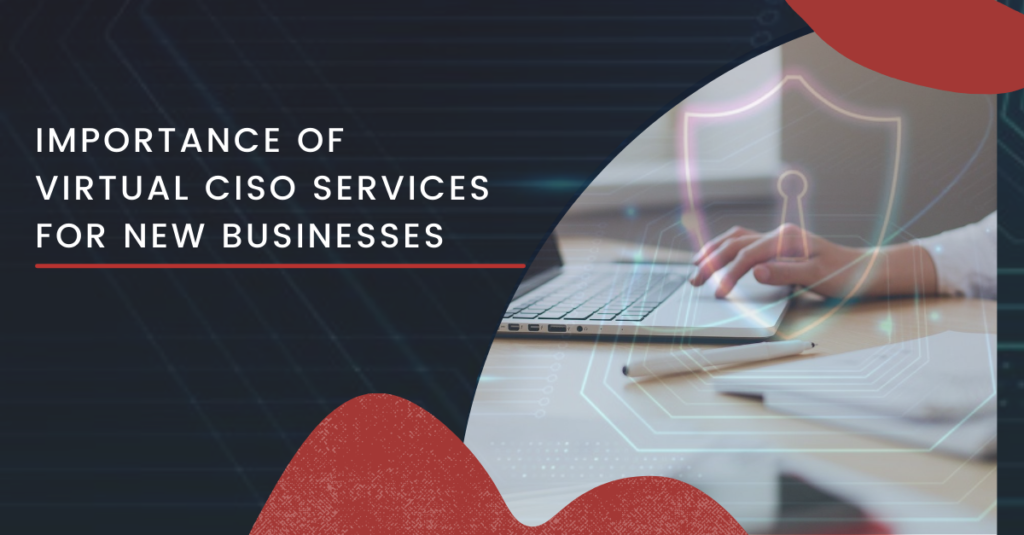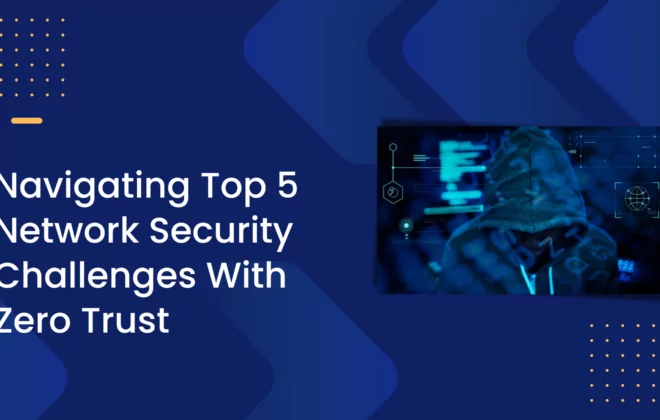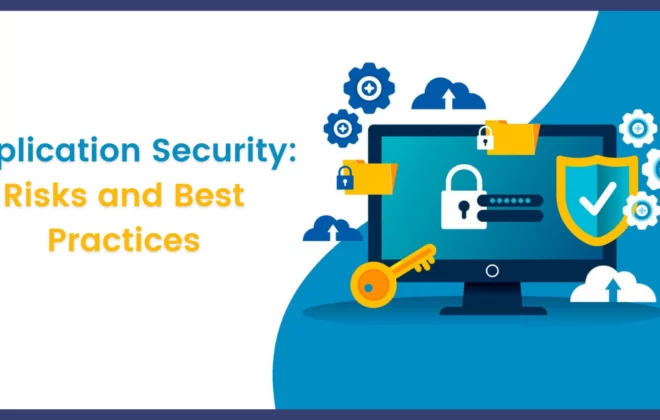Importance of Virtual CISO (vCISO) Services for New Businesses

Organizations require constant attention and expert guidance of an executive-level leadership to ensure the security of business data, networks, and the sensitive information of their customers. Owing to the growing cyberattacks these days, organizations must have Chief Information Security Officers (CISOs) to assist them in strengthening their security posture. Let’s get to know more about the importance of virtual CISO (vCISO) services for new businesses.
What Role does a CISO play?
A Chief Information Security Officer (CISO) plays an important role in an organization’s overall security posture. This includes both physical and network security. A CISO is the top C-level manager in the organization who is responsible for preparing cybersecurity strategies and tactics as well as planning, executing, monitoring, and managing cybersecurity programs.
Organizations need CISOs to define and enforce their cybersecurity policies, culture, procedures, and security architecture. Also, CISOs monitor and fix defects in corporate devices in addition to planning and creating corporate security policies to ensure that the organization is compliant with all data protection requirements.
What is a Virtual CISO?
For organizations that seek security expertise and guidance, virtual CISO is a service that helps them get top-tier security expert services without hiring these experts for full time. Virtual CISOs are experts who have decades of experience working with different organizations and they charge a fraction of what is charged by full-time CISOs. Like CISOs, virtual CISOs help in creating InfoSec programs that align with enterprise business objectives and improve their security posture. In short, a virtual CISO (vCISO) is an outsourced security practitioner/advisor that offers their insight and time to a company for helping it strengthen its security posture on an ongoing basis remotely and part-time.
Need for a Virtual CISO
Hiring a CISO for a full-time basis is a big challenge for organizations, especially new enterprises because of the shortage of expert talent in the job market. Moreover, CISOs usually derive six-digit salaries which small organizations cannot afford to pay. In order to oversee the important cybersecurity functions, organizations need great expertise and knowledge in the relevant areas.
Organizations typically face the following challenges that require them to take vCISO services:
- Evolving threat landscape
- Shortage of expert skills
- Cybersecurity budget
- Evolving regulatory compliance
- Average time to respond
- IoT security
- Cloud adoption and shadow IT
Virtual CISOs can help organizations to deal with these challenges. Virtual CISOs (vCISOs) provide their expert services in a low cost (around 60-70% less than a full-time CISO’s salary). As they provide their services for part-time remotely, organizations can easily benefit from their insight and strengthen their security posture without worrying much about hiring new talent and paying hefty salaries. With vCISOs, organizations do not have to compromise on the need for high-end cybersecurity professionals, while saving the cost at the same time.
Benefits of virtual CISO services
Organizations can reap several other benefits in addition to getting highly effective CISO services remotely and saving costs. Organizations get multiple information security services under vCISO service offering. Some of the important services provided by virtual CISOs are:
- Security consultant: Organizations hire a dedicated vCISO who can understand their needs, environment, and industry. vCISOs assist organizations to develop a comprehensive plan for protecting their reputation and ensuring overall security posture.
- Security awareness: With vCISO services, organizations can design security awareness programs that adhere to the industry standards as well as regulatory and compliance requirements.
- Single point of contact: Organizations can directly contact their vCISOs anytime via email, phone, or instant messenger for any security issue or query.
- Vulnerability management: vCSIOs use the best enterprise security tools to identify vulnerabilities in corporate environments. In addition, virtual CISOs prioritize remediation efforts, thereby allowing security teams to focus on other important matters.
- Incident response: By coordinating with the organizations’ staff, vCISOs can help them develop a comprehensive incident response plan to thwart threats timely and effectively. They also help organizations with 24*7 security monitoring, thereby blocking threats before actual attacks can occur.
- Compliance initiatives: vCISOs help organizations to develop compliance programs that strictly adhere to the key privacy regulations such as PCI, HIPAA, GLBA, FERPA, GDPR, and state privacy laws.
- Risk/Audit management: With rich experience of working in different industry sectors with multiple organizations, vCISOs can help organizations prioritize findings, create realistic goals for information security controls, and take remediation actions.
How Can a Virtual CISO (vCISO) Help Organizations?
vCISOs assist organizations by pinpointing their security weaknesses and optimizing their security posture over a long term. vCISOs perform comprehensive security assessments of the security posture of organizations to identify the areas that need improvement. vCISOs will help enterprises to establish the necessary security standards, implement security controls, and promptly respond to security incidents by regularly optimizing the approach to address the ever-changing threat landscape along with the industry regulations and best practices.
Organizations can seek help from vCISOs as their single-point-of-contact for all their information security-related issues when they arise. When security issues occur, vCISOs respond to incidents and data breaches and answer security-related questionnaires for organizations’ customers. In addition, vCISOs support enterprises with the following services:
- Security awareness training
- Data classification
- Security program design
- Vulnerability management monitoring
- Data loss prevention (DLP) and DLP plan implementation
- Vendor contracts and risk management
- Compliance initiatives (HIPAA, SOX, PCI, etc.)
- BYOD strategy and policy design
- Security architecture design and policy development
- Implementing security standards (FISMA, ISO 27001, NIST, etc.)
- Identity and access management (IAM)
- Audit remediation and audit management
- Information risk reviews and risk management
- SOC readiness and compliance
New businesses can take advantage of vCISO services offered by various organizations that provide information security services. At Varutra, we do provide high-quality, convenient, and cost-effective virtual CISO services for organizations that do want to hire a full-time CISO due to any reason and still want to benefit from the industry experts for managing their enterprise security posture. Our comprehensive virtual CISO service offerings are designed to help businesses align their technology with their dynamic business goals effectively, without compromising on information security.
Responsibilities of a Virtual CISO (vCISO)
Virtual CISOs hold crucial responsibilities in ensuring organizations are secure against various forms of cyberattacks. They even help organizations with various other security-related operations, including responding to threats timely. Some important responsibilities of a vCISO include
- Offer expert assessment on threats and risk compliance
- Provide effective and strong leadership on risk, incident response (IR), governance, business continuity and disaster recovery (BCDR).
- Advise on how to create effective information security and resiliency programs.
- Enable the integration of security into enterprise processes, culture, and business strategy.
- Supervise the development, implementation, and ongoing maintenance of InfoSec programs.
- Provide expert guidance on various industry standards.
- Behave as security liaison to examiners, assessors, and auditors.
- Help to integrate and interpret InfoSec program controls.
In addition to the above responsibilities, vCISOs manage multiple policies related to the following:
- Threat modelling
- System updates
- Penetration testing
- Risk management
- Security checks installation
- Usage of effective encryption
With rapid digital transformation, vCISO-as-a-service is a cost-effective and convenient option for small and new businesses. While having a dedicated full-time CISO is not feasible for many organizations, vCISO can provide the same expert services without affecting the quality of InfoSec services at a nominal cost. Through the vCISO service, small organizations and start-ups can have leadership of CISO and can protect their InfoSec assets and technology.
References
https://www.cybersecurityservices.com/virtual-ciso-services/
https://www.happiestminds.com/solutions/virtual-ciso/
https://www.ciso-portal.com/ciso-vs-cio-what-is-the-difference/
https://frsecure.com/virtual-ciso/
Author,
Mustafa Ahmed
Varutra Consulting Pvt. Ltd.




